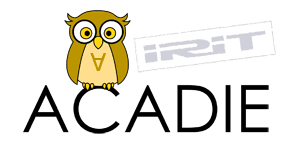Rigorous Safety-Critical Cyber-Physical Systems Development using Formal Methods
Résumé
Today, we are surrounded by digital technologies and highly complex systems, where safety-critical cyber-physical systems have taken central place in our lives and in various industrial sectors to improve human lives and boost economies by solving key issues in a variety of domains, including defense, transportation, space, healthcare and biomedical, agriculture, manufacturing, smart grids and energy, and everyday living. With great utility, however, safety-critical cyber-physical systems brought very important issues in their development, particularly in system modelling, security and privacy, heterogeneity, composition, and certification, which could jeopardize our well-being as well as the development and reliability of cyber-physical systems. Our increased reliance on safety-critical cyber-physical systems also prompted us to consider the ethics of these systems and how future technologies might limit risks related to failure, safety, privacy, responsibility, liability, and other issues.
We argue that addressing some of these essential questions requires combining formal approaches with key domains like domain knowledge engineering, system modelling, and certification for rigorous formal engineering of safety-critical cyber-physical systems. Formal methods play a key role to model such complex systems correctly.
Domain knowledge engineering is useful for specifying essential elements that can be used to develop domain models and establishing relationships between system models. System modelling enables the development of generic frameworks, modelling and designing patterns, formal theories and proofs, and implementation for addressing design challenges. Finally, certification methods aid in the certification of complex safety-critical cyber-physical systems and their components.
This manuscript synthesises our research efforts on the development and investigation of methods for dealing with formal engineering processes such as modelling, refinement and simulation, domain knowledge engineering, design automation, heterogeneity, composition, safety, and certification issues for safety-critical cyber-physical systems. Our first contribution focuses on domain knowledge engineering for dealing with their various core concepts. The next contribution focuses on system modelling, covering various approaches such as automatic refinement, modelling and designing framework, patterns and theories, reflexive meta-modelling, environment modelling and automatic code generation. The last contribution focuses on certification and the development of assurance cases. Finally, we deploy these approaches to the design of safety-critical cyber-physical systems from various domains. We conclude by describing the perspectives of our research, which include two main directions: (i) perspectives on theories, models, patterns, and tools, and (ii) perspectives on safety-critical cyber-physical systems.
| Origine | Fichiers produits par l'(les) auteur(s) |
|---|




